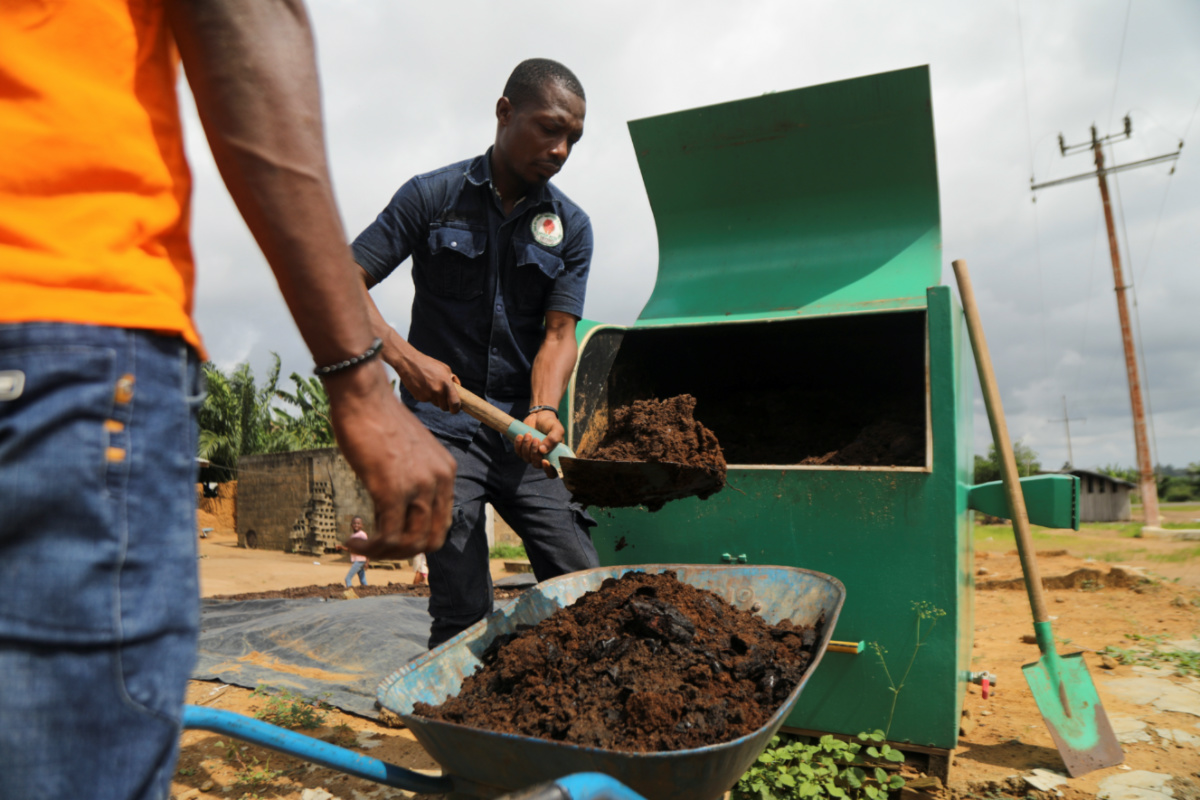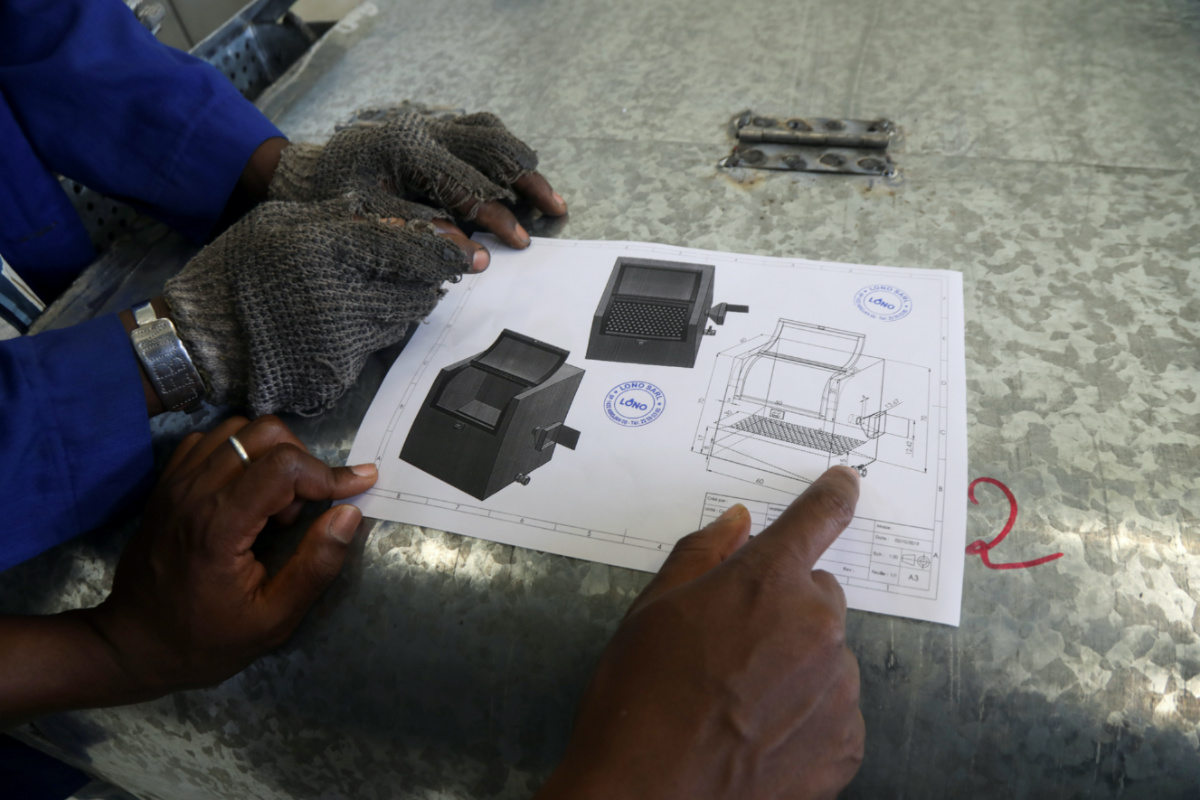
LOUCOUMANE COULIBALY, of Reuters, reports from West Africa…
Nandibo, Ivory Coast
Reuters
Award-winning waste converters are helping farmers in Ivory Coast turn mountains of agricultural by-products into compost for their fields or gas for their cooking stoves.
The small green “KubeKo” box was dreamt up by chemical engineer Noel N’guessan to make use of the 30 million tonnes of waste generated by crop production in the West African country each year and other biowaste like animal dung.

Agents remove organic fertiliser from an Award-winning biowaste converter Kubeko machine, in Nandibo, Ivory Coast, on 19th October. PICTURE: Reuters/ Luc Gnago
Farmers like palm oil producer Michel Ahouri simply throw in organic matter and wait four weeks. One box can create 150 kilograms of compost per month.
“It’s natural, it’s organic, it’s appropriate for our soil, for our fields – we will triple our production,” Ahouri said after scattering the compost at the roots of his rustling palms.
In July, the invention netted N’guessan an innovation award worth over $US33,700 from the United Kingdom’s Royal Academy of Engineering.
By then, the team had already sold 50 composters to Ivorian cocoa, palm oil and mango farms. The boxes cost $US700 to produce, according to the academy.

Ivorian engineer Noel N’Guessan, inventor of an award-winning biowaste converter Kubeko machine, instructs a technician how to make the machine, at a workshop in Yamoussoukro, Ivory Coast, on 22nd October. PICTURE: Reuters/Luc Gnago.
The team also produces biodigesters – similar metal box-like contraptions that can fuel two hours of cooking on the gas generated from five kilograms of waste per day, while producing litres of liquid compost.
This kind of gas production could be a sustainable alternative source of cleaner energy in rural areas in West Africa, according to a 2018 report by the European Commission. Every cubic metre of biogas, a mixture primarily of methane and carbon dioxide, is estimated to replace the equivalent of five kilograms of wood or three kilograms of coal, it said.
“Instead of throwing our waste on the streets, we collect it,” said farmer Ahouri. “We are protecting the environment because instead of leaving it there, we use it.”





